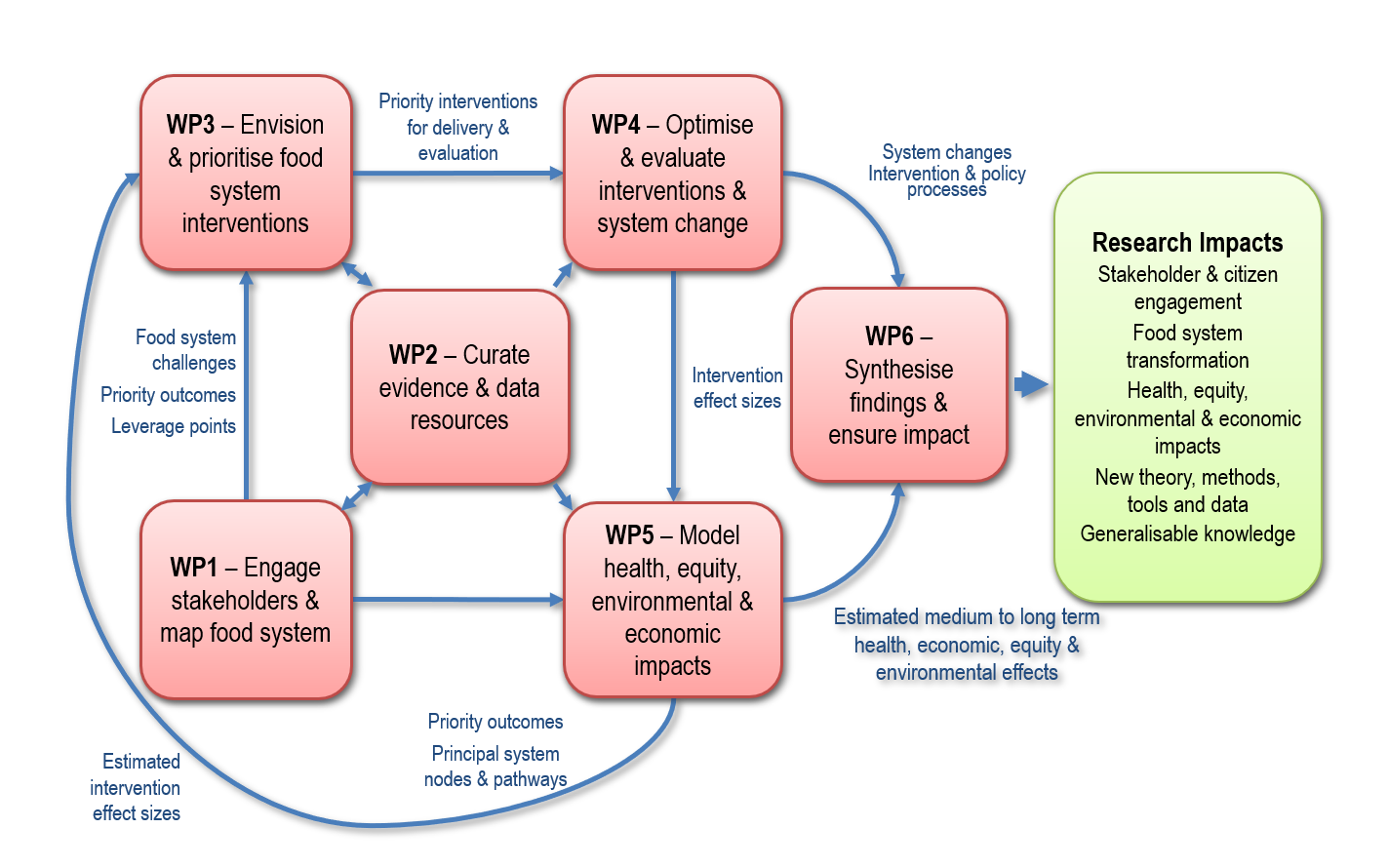Our research will be conducted across six work packages:
- Stakeholder engagement and system mapping
- Creating an integrated data and analytics platform
- Envisioning and prioritising interventions
- Optimising and evaluating system change
- Modelling health, equity, environmental & economic impacts
- Synthesise findings and creating impact
1 – Stakeholder engagement and system mapping
We will establish a shared understanding of how the current food system works and how it might be changed for the better. We will engage professionals and citizens to generate a map of Birmingham’s food system, determine what needs to change and how that might best be achieved.
2 – Creating an integrated data and analytics platform
We will create a novel, integrated and flexible data and analytics platform for Birmingham and comparator areas. We will collect primary data and exploit multiple secondary data sources, alongside rapid evidence syntheses to inform system maps, model building, and prioritisation of interventions.
All data will be made publicly available, except where there are contractual or ethical obligations for confidentiality. Our aspiration is to develop the platform into a data and visualization dashboard with stakeholders.
3 – Envisioning and prioritising interventions
Building on Work Package 1, our partners will generate a vision that links local and national policy, and can deliver sustainable, healthy and affordable food for all in an economically viable food system.
We will identify coordinated actions that can push consumer demand for healthier and less environmentally damaging food to a tipping point where they are economically sustainable and can stimulate transformations across the wider system.
4 – Optimising and evaluating system change
We will evaluate the impacts of interventions prioritised in Work Package 3, so we can understand expected effects and unintended consequences. We will consider intervention impacts on the wider system, noting their points of interaction and synergies.
In addition, we will conduct a broader evaluation of the programme as a whole, enabling learning on systems approaches to transformative change. Results will feed into Work Package 5 and 6.
5 – Modelling health, equity, environmental & economic impacts
We will use modelling approaches to
- explore dietary and food supply consequences of hypothetical interventions, including supply chain reconfiguration
- simulate their medium to long-term effects on health, equity, environment, and economic outcomes.
Our approach to modelling will bring together established modelling methods from epidemiology, economics and environmental sciences, guided by an underpinning systems science approach.
6 – Synthesise findings and creating impact
We will:
- synthesise programme findings to derive generalisable learning for Birmingham and other cities within and beyond the UK
- achieve wider impact through a variety of communications and knowledge exchange approaches
We aim to achieve impact within Birmingham, among key national actors, with the media and public, and within the reseach community.

